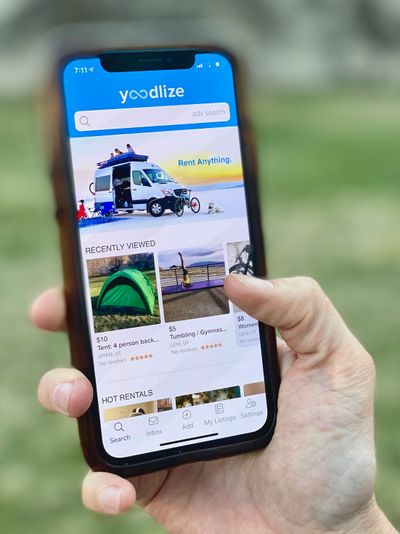by Jeremy Hanks, CEO of Dsco.
This article was originally published in the Summer 2017 edition of Silicon Slopes Magazine.
I can remember the exact moment it hit me. I was driving to work one cold January day when I noticed the mountains had disappeared. Worse yet, even not so distant buildings were hard to make out in the soupy brown haze my Xterra was swimming through. As I began to think, someone needs to do something about this, I looked at my car, and all the other thousands of commuter vehicles on the highway, and another more piercing thought hit me: this is my fault . . . I work in technology . . . why am I driving to work on a day like this?
Some facts:
- Salt Lake City and Provo have some of the worst air quality in the nation. The EPA recently reclassified Provo and Salt Lake City’s pollution from “moderate” to “serious”. The only other city in the country unable to achieve EPA compliance standards is Fairbanks, Alaska. Being one of only two regions in the nation with such a distinction is, quite frankly, embarrassing.
- **Mobile sources generate 60% of air pollution, **according to KUED. While this includes things like lawnmowers and airplanes, the vast majority comes from cars and trucks.
- Utah’s tech industry contributes significantly to commuter pollution. Tech is booming in Utah. Forbes, TechCrunch, and Inc. have all touted us as the next “tech mecca” and the number of jobs available is steadily on the rise. As active tech workers increase, so will pollution levels. This means the tech industry has a lot of power to influence the quality of the air we breathe.
- Bad air quality is a major health concern. According to Fox 13, air pollution is the major factor behind an increase in Utah patients seeking medical help for breathing related problems, like shortness of breath, chest pains, and lung inflammation.
- The majority of the concern surfaces on bad inversion days in winter, and ozone days in summer.
![]()
Considering the above, the Utah technology community is in a real position to do something positive about this.
So here’s the plan: Dsco is implementing a work-from-home policy for bad air quality days throughout the year, and will be working with other tech companies to do the same.
While such an initiative would entail a fair amount of costs, planning, and coordination, it could make a significant dent in air pollution levels should enough companies join in. As an added benefit, many workers would enjoy the occasional opportunity to work from home. The way I see it, if tech companies are unable implement a policy like this, then no other industry can. So it’s up to us to work together to make it happen. If you’re interested in getting more information about this initiative (as well as other ways you can get involved with air quality issues) definitely drop me a line at jeremy@dsco.io. Let’s do this!
Utah is beautiful. It’s also a great place to work. I believe we can bring our clear blue skies back and keep the state’s economy and tech industry thriving. Wouldn’t it be wonderful to wake up with clean air to breathe and the sight of snow capped mountains glistening in the sun every morning? As industry leaders in Utah we can help make this happen. Let’s find and commit to ways to ensure the state stays beautiful, healthy, and enjoyable for all.
![]()






